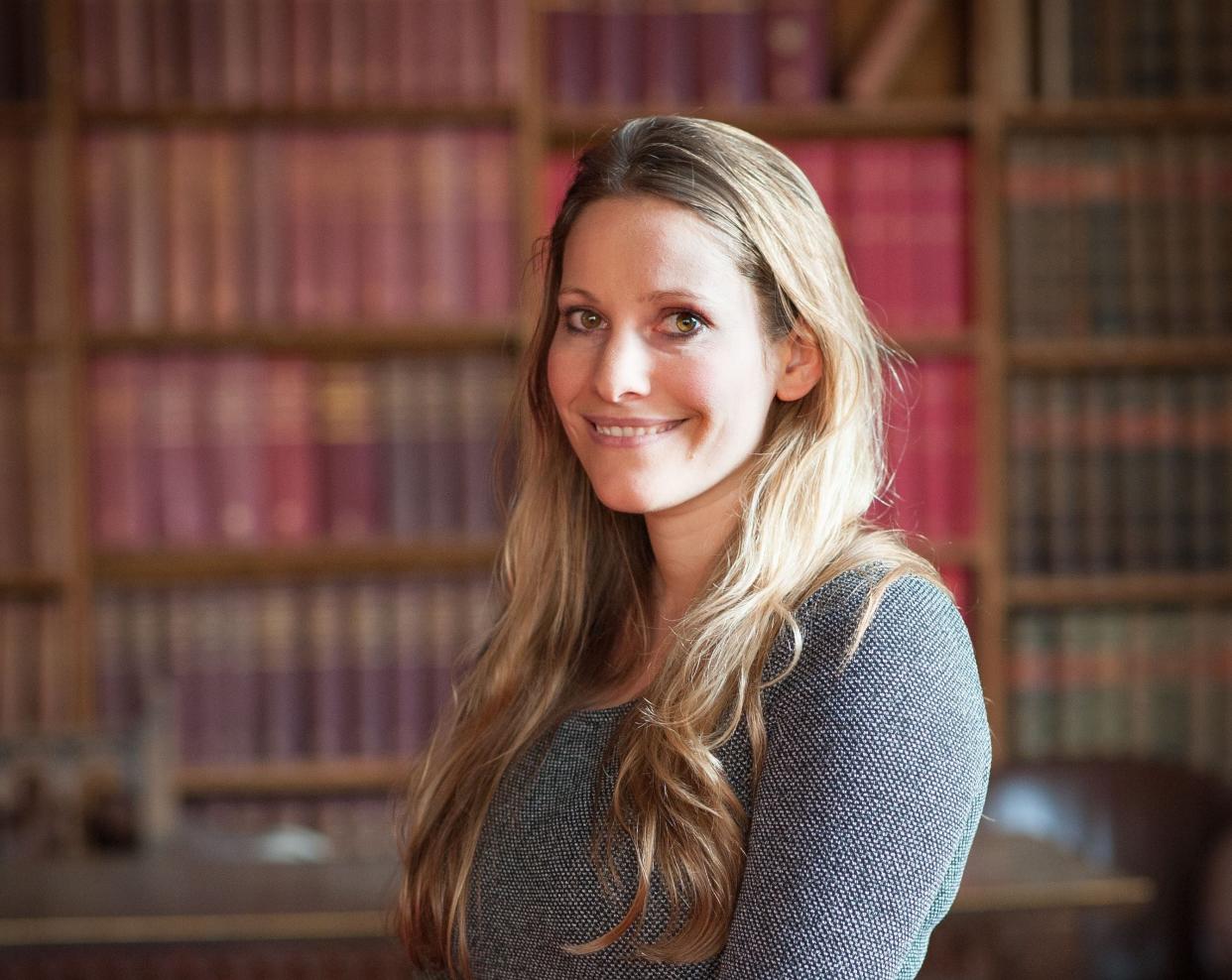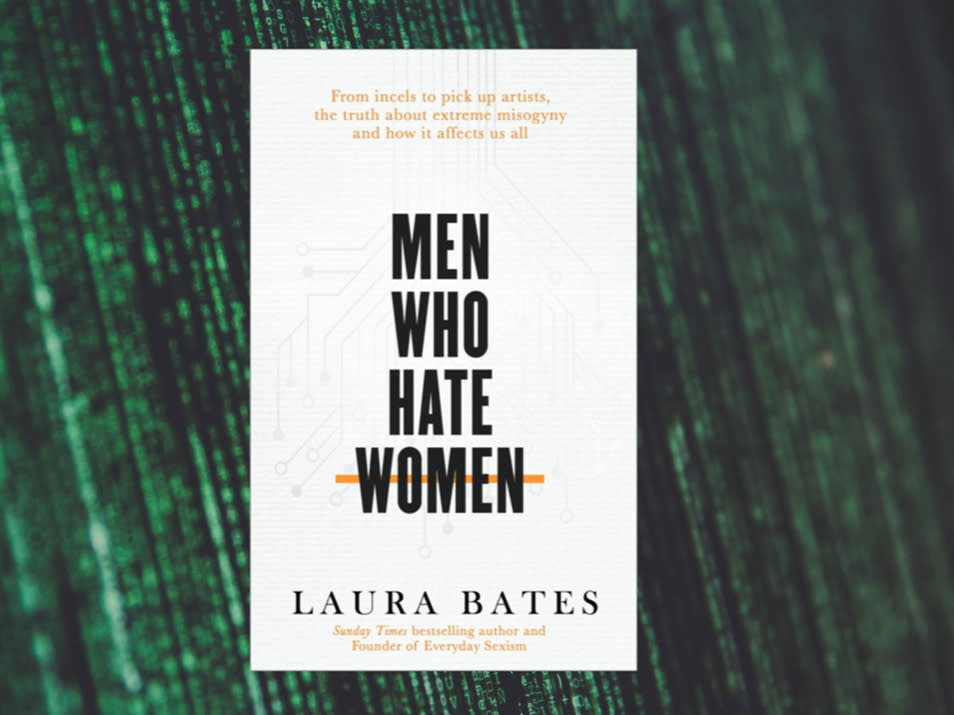Welcome to the ‘manosphere’ – a brave new book shows why we should all be afraid

I don’t mean to slight the brilliant, insanely brave writer Laura Bates when I say that I did not want to read her latest book, and that my first reflex on getting through a page of Men Who Hate Women was to slam it shut and go watch something soothing on Netflix. Sure, I realise that there is a seething cesspit of misogynistic hatred out there, but much like my next dental appointment, while dimly aware of its existence, I’d rather not think about it.
It’s uncomfortable to know that a violent hatred of women isn’t confined to the tame cliche of spittle-flecked keyboard warriors in greying Y-fronts, and that there are swathes of men in all layers of society who hold views that frankly make Margaret Atwood’s Gilead look progressive. Bates is best known for running the Everyday Sexism Project, a website predating the #MeToo movement that lets women share their dispiritingly commonplace experiences of prejudice and harassment. For her new book, she set out to find the source of an increasingly fanatical wave of misogyny. Prowling the message boards undercover as a disillusioned young man called Alex, she walks us hand-in-hand through the shocking online communities that stoke a real-world pandemic of sexual assault and violence against women.
Together dubbed the “manosphere” – itself a cute term that Bates warns trivialises the threat – these movements include “incels”, a shorthand for involuntary celibates. Frustrated and grumpy over their lack of success with women, this group of charmers broadly appears to believe that rape and sexual slavery are not just justified but part of the fabric of an ideal society. Those who enjoy sexual success – “Chads” and “Tracys” – meanwhile, deserve violent retribution. Bates shares a typical post from a user who is perturbed by the concept of women as human beings in charge of their own lives.
“Nature gave them [women] a bunch of social and sexual advantages to compensate for their lack of resources. Now that they have resource and sex power, things are out of balance. We need that prevent females from going to university or taking family supporting jobs. Our prisons are full of men who could not feed their families, the rape laws should be repealed. Females are artificially restricting the supply of available females in their reproductive years. Rape is the answer. Societies go to war over lack of females and jobs. Females have become a threat to society and must be put back in their place.”

Instead of chortling at the mad ravings of a fringe loser, we need to recognise that this is part of a seriously dangerous movement that intersects with other factions of the far-right to devastating effect. The term “incel” hit the headlines in 2014, when Elliot Rodger killed six people in the US in a “day of retribution”, and in 2018, when Alek Minassian drove a van into a crowded pavement in Canada, killing 10. As Bates puts it:
“This is a radical, extremist movement, at least tens of thousands of members strong, that deliberately spreads a doctrine of hate-fuelled misogyny and male supremacy, and actively advocates for the violent rape and murder of women. It sucks in young men looking for answers about relationships, indoctrinates recruits with dogmatic ideology and an entire self-spawned lexicon, and exonerates and lionises those who kill in its name. Most pertinently of all, it has produced a significant number of mass murderers who have committed what ought rightly to be described as terrorist acts in its name. That so few people have ever heard of it is, frankly, outrageous.”
As with all echo chambers, we can easily ignore the ones we dislike, helped along by a mass media that will pigeonhole Muslims as terrorists but struggles to make the connection between sexism and systemic violence. In the US, Bates notes, attacks perpetrated by Muslims receive 357 per cent more coverage than those committed by white people, controlling for factors like the number of victims. And when white men do hit the headlines for terrorism or murder, they tend to be described as lone wolves, mentally ill, or driven to despair, as opposed to having been radicalised by a crazed but eerily consistent world view.
In Men Who Hate Women, project founder Laura Bates investigates extremist misogynistic communities and how they’re killing women, radicalising boys and shaping our offline world https://t.co/MNg4tu1Gw3 #everydaysexism #hatecanthide pic.twitter.com/XOHpKsI99M
— EverydaySexism (@EverydaySexism) September 1, 2020
It’s not just the incels. In a sad litany of rampant woman-haters, Bates introduces us to the PUAs (pick-up artists, who are every bit as creepy and unartistic as you would imagine), MGTOW (men going their own way), common or garden trolls, domestic abusers and MRA (men’s rights activists, who pretend to care about the very real problems in men’s lives in order to blame it all on the feminists). They all coagulate around the basic dehumanisation of women. Rather than seeing women as fully fledged people, they are a paper-thin stereotype, a scapegoat, a game to win, an easy target, an enemy, a “foid” (female humanoid, another glib incel coinage). With or without the smokescreen of alt-right irony, it’s the same sinister reduction of what it means to be a person that crops up in analyses of violent extremism from Ed Husain’s The Islamist to Amartya Sen’s sweeping Identity and Violence.
If you don’t dip a toe into the fetid waters of the manosphere, it’s easy to think that we are, by and large, moving in the right direction. The sexist jokes I remember as common in the Nineties have largely faded from earshot, the overtly sexist adverts of the Seventies would mean immediate boycott, there are women running countries, corporations and global institutions. But as Bates makes devastatingly clear, misogyny hasn’t gone, it’s just gone underground and online. This in a world where police ask her what a Twitter handle is as she reports a flood of graphic rape and death threats, where parents are unlikely to realise that the YouTube algorithm is sending their kids down a rabbit hole of extreme content. Page after page rings with eloquent outrage at a society almost deliberately deaf to the toxic threat of the manosphere.
In a cruel irony, men and boys suffer too. “We have to recognise that our current societal version of masculinity is failing them. It leaves them isolated, forced to adopt a swaggering bravado that prevents them from talking about how they feel or forming mutually supportive relationships,” as Bates writes. This could explain the high rates of male suicide that sincere men’s rights activists seek to tackle, in part by challenging rigid stereotypes. While Bates goes out of her way to fill in the nuances, documenting the decent men and lost boys who pop up in the most unsavoury chatrooms, her focus is unequivocally on women. Because, as she writes, in a world where one third of women have experienced physical and/or sexual violence:
“Women have always been the canaries in the coal mines, quietly singing. But we are so used to seeing them die at men’s hands, so used to justifying and excusing it as normal or ‘understandable’, that it wouldn’t occur to us to consider this enough of an aberration to raise alarm. And so women continue to suffer and die in silence. And, sometimes days, sometimes weeks, sometimes months down the line, men (or rather, as they are seen, ‘people’) die, too. Then how we shout and react.”
Let’s hope this book stirs a reaction of a different kind, opening our eyes to the threat of extreme misogyny and prodding officialdom into action. We all know that we shouldn’t feed the trolls, but tempting as it is, nor can we pretend they don’t exist.
Men Who Hate Women is out now
Read more
Carl Hiaasen: ‘They’re gonna have to drag Trump out of the White House’
Romola Garai: ‘Actresses now are not physically unsafe in the way that they were when I was younger’


